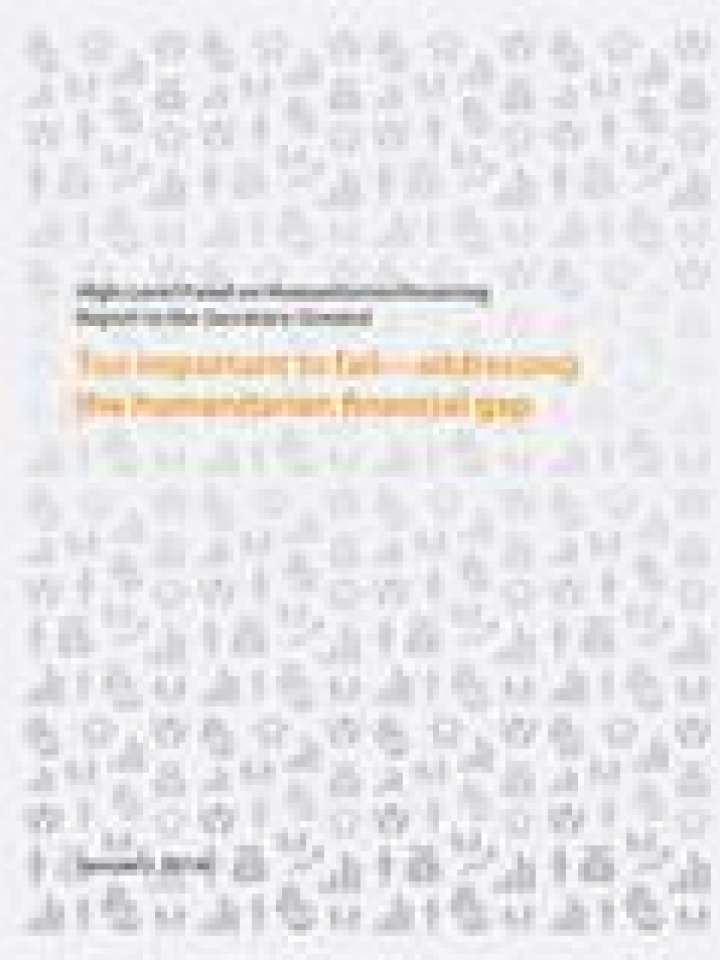Too important to fail: addressing the humanitarian financing gap
High-Level Panel on Humanitarian Financing: Report to the Secretary-General
The UN Secretary-General has appointed a nineperson group of experts (“the panel”) to work on finding solutions about the widening humanitarian financial gap. The panel conducted hundreds of interviews with all parts of the humanitarian ecosystem, including meetings with affected people in ongoing crises. The panel identified and examined three important and interdependent aspects of the humanitarian financing challenge: reducing the needs, mobilising additional funds through either traditional or innovative mechanisms, and improving the efficiency of humanitarian assistance.
Among its recommendations are: (i) Reclassify the eligibility criteria of the World Bank’s International Development Association (IDA), so that funding follows people in need and not countries, to enlarge opportunities to MICs. (ii) Far higher proportion of official development assistance should be directed to situations of fragility and protracted emergencies, oriented towards increasing investment in disaster risk reduction and building resilience and reducing fragility. (iii) Triple the IDA’s Crisis Response Window and expand funding capacity for emergencies in other development finance institutions. (iv) Governments should voluntarily sign up to a “solidarity levy” mechanism at the WHS to fund humanitarian aid. (v) Channel Islamic social finance and other instruments to humanitarian causes. (vi) Donors and aid organisations to commit jointly to change their working practices in a Grand Bargain.
Explore further
